Updated October 9th, 2023 at 00:32 IST
From economic crisis to political tussle, here's what lies ahead for Pakistan in upcoming elections
Pakistan, which is currently embroiled in a historic economic crisis and political tussle, is expected to go to the polls soon. Here's all you need to know.
Advertisement
Pakistan, which is currently embroiled in a historic economic crisis and political tussle, is expected to conduct general elections soon. After multiple delays, the Election Commission of Pakistan (ECP) announced that the cash-strapped country will go to polls in the last week of January 2024. However, the challenge of conducting a poll in a cash-strapped nation remains an unprecedented task.
With the future of some of the leading political candidates continuing to remain bleak, the major question which emerges is whether Pakistan will be able to conduct fair elections or will the poverty-stricken country will dwindle into the arms of the country’s army, which has been the case in the past.
Advertisement
After former Pakistan Prime Minister Shehbaz Sharif and his cabinet’s early exit on August 12, the country was supposed to go to polls within 90 days. However, just days before his exit, Sharif announced that the upcoming elections would be held based on the 2023 digital census. This put immense pressure on the country’s election watchdog, the Election Commission of Pakistan (ECP). The body has been tasked with delimitation of constituencies for the polls, compelling the body to push the polling dates to January 2024. As Pakistan prepares for the general elections, here’s all you need to know:
Composition of the Pakistan National Assembly
According to Article 51 (1) and 3(a) of the Constitution of Pakistan, there are 336 seats for members in the National Assembly. This includes seats reserved for women and non-Muslims. While the latest bifurcations of the seats are yet to be made public, here’s a look at how the seats in the Provinces were divided during the 2018 elections.
| Province / Area | General Seats | Women Seats | Non-Muslim | Total Seats |
Balochistan | 16 | 4 |
| 20 |
Khyber Pakhtunkhwa | 45 | 10 |
| 55 |
Punjab | 141 | 32 |
| 173 |
Sindh | 61 | 14 |
| 75 |
Federal Capital | 3 | - |
| 3 |
|
|
| 10 | 10 |
Total | 266 | 60 | 10 | 336 |
Who are likely to be the key players?
When it comes to the top contenders, the future of the political stalwarts remains bleak, the three main parties to watch out for are – Pakistan Tehreek-e-Insaf (PTI), Pakistan Muslim League-Nawaz (PML-N) and Pakistan People’s Party (PPP). Here’s a look at who will be the key players within these parties:
- Pakistan Tehreek-e-Insaf (PTI)
With former Pakistan Prime Minister and PTI chief Imran Khan still in jail, it is still not clear who will be the next face of the party. Imran’s second-in-command Shah Mehmood Qureshi is also behind the bars for his alleged involvement in the Cypher case. While Khan is barred from taking part in the polls, his party will look forward to utilise the sympathies of the supporters.
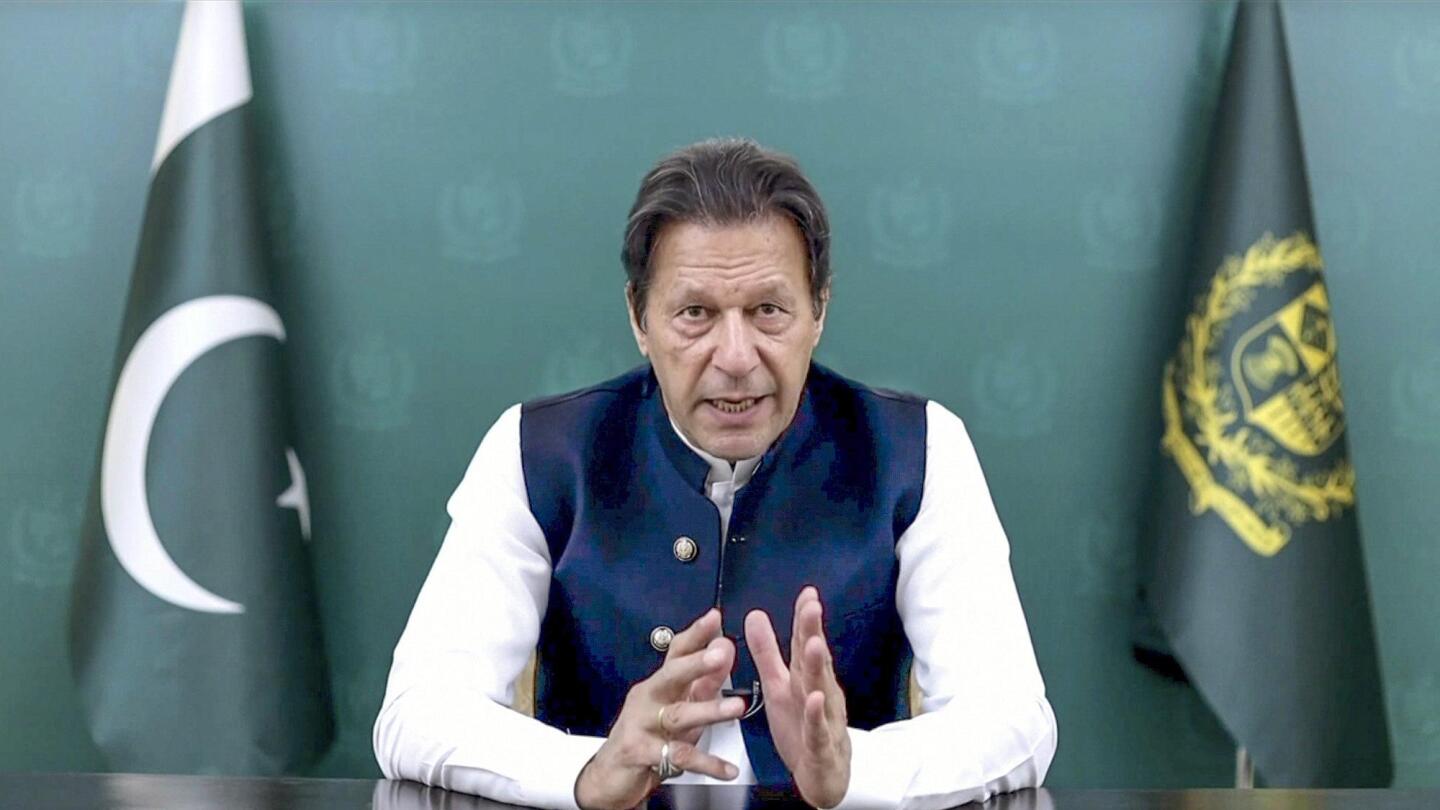
Former Prime Minister of Pakistan Imran Khan and PTI chief, Image: AP
Advertisement
- Pakistan Muslim League - Nawaz (PML-N)
Former PM Shehbaz Sharif has said that Nawaz Sharif-- his elder brother and three-time premier of Pakistan, will be the next PM if his party wins the election. However, Nawaz is already engulfed with a plethora of legal cases and it is still not clear if he will be allowed to contest the election. Hence, the party is left with the only alternative to put Shehbaz back in power.
Advertisement
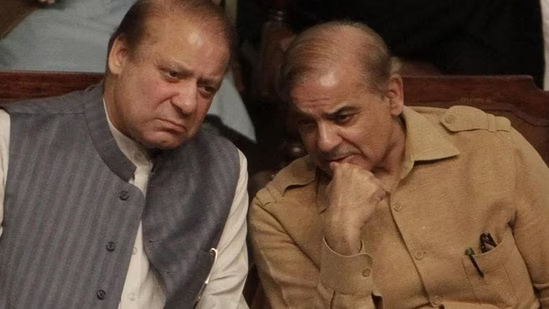
Former Prime Ministers of Pakistan Nawaz Sharif and Shehbaz Sharif, Image: PTI
- Pakistan Peoples Party (PPP)
Bilawal Bhutto Zardari, the young chairman of the PPP and son of former Prime Minister Benazir Bhutto, is touted as another key player in the upcoming elections. Amid the chaos of delays in polls, Bhutto is one of the few politicians who have been aggressively pushing for timely elections.
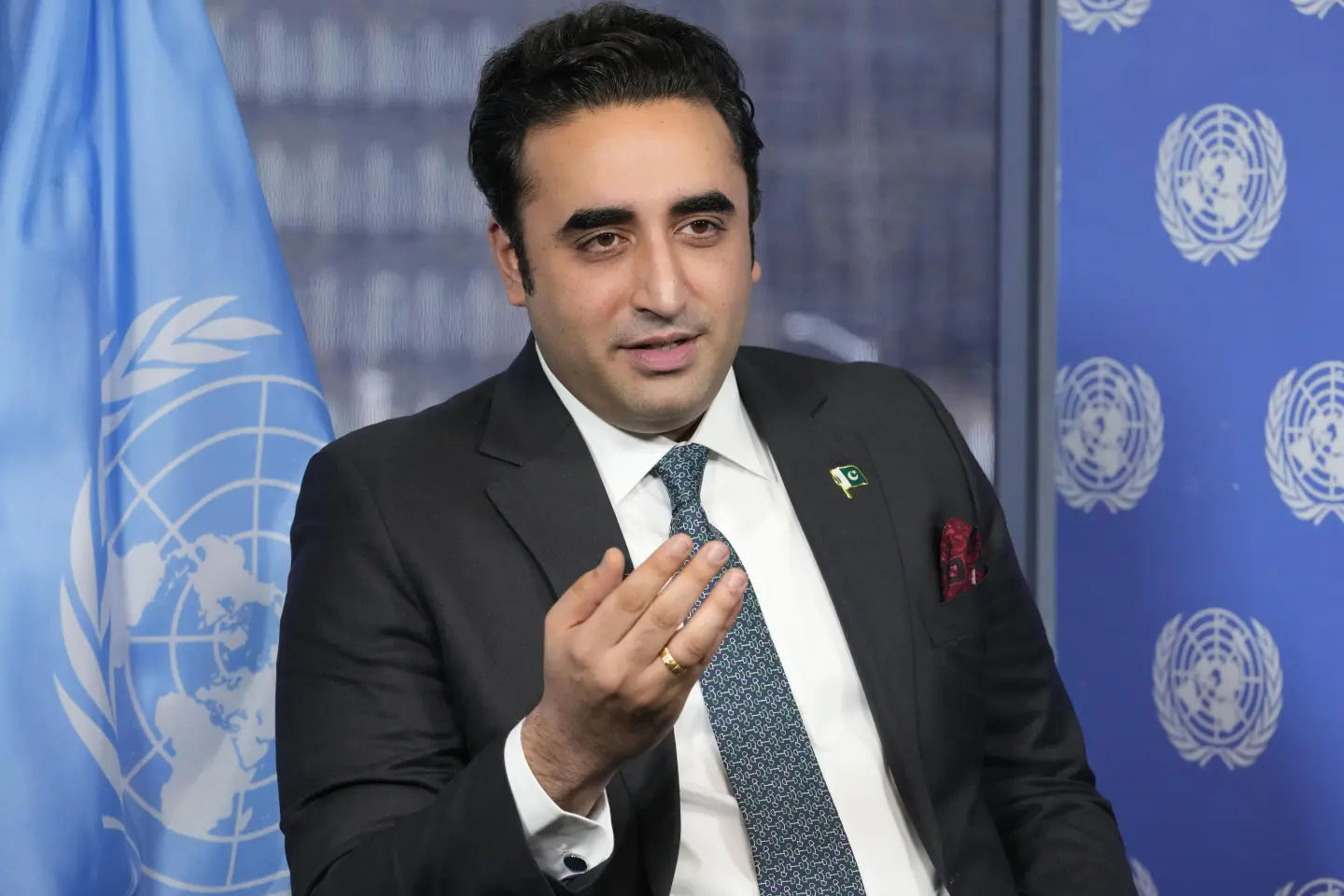
Pakistan's former Foreign Minister and PPP chief Bilawal Bhutto Zardari, Image: AP
Advertisement
Challenges ahead
- Economic instability - Pakistan is currently undergoing one of the biggest economic crises it has witnessed since its inception. With inflation in the country skyrocketing, the government is running out of federal reserves at an exponential rate. The economic crisis has led to political mayhem with hundreds of Pakistanis coming to the streets to protest against the soaring prices.
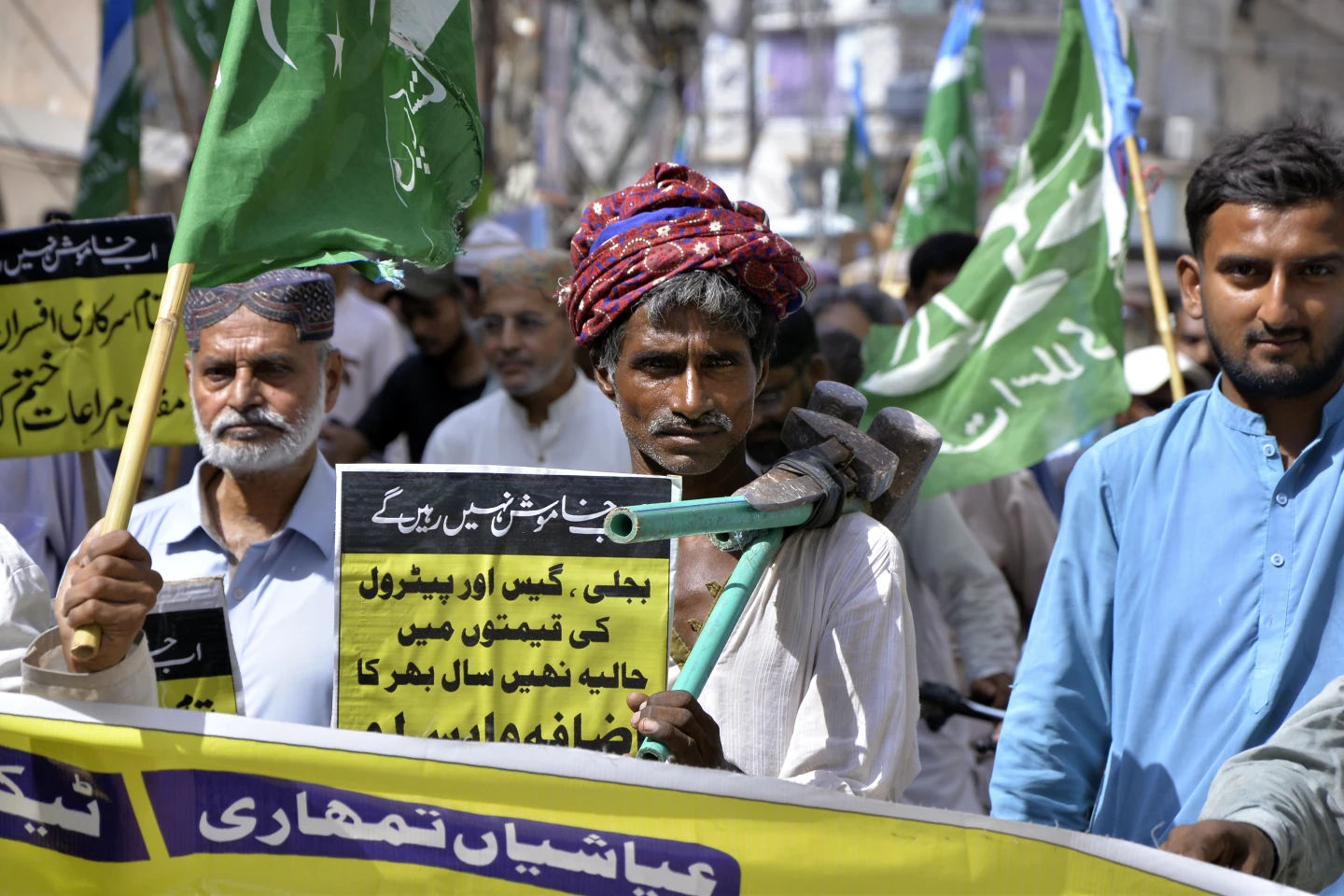
Supporters of Jamaat-e-Islami chant anti-Pakistan government during a strike against inflation in Hyderabad, Pakistan, Image: AP
- Political tussle - The ongoing tussle between Imran Khan and the country’s ruling regime, has led to violent demonstrations across the country. After Khan was arrested on May 9, thousands of people took to the streets, making Pakistan burn like never before. Hence, the risk of such protests remains apparent. With no clarity on Imran Khan and Nawaz Sharif’s future in Pakistan’s mainstream politics, it is still unclear who will be the next PM.
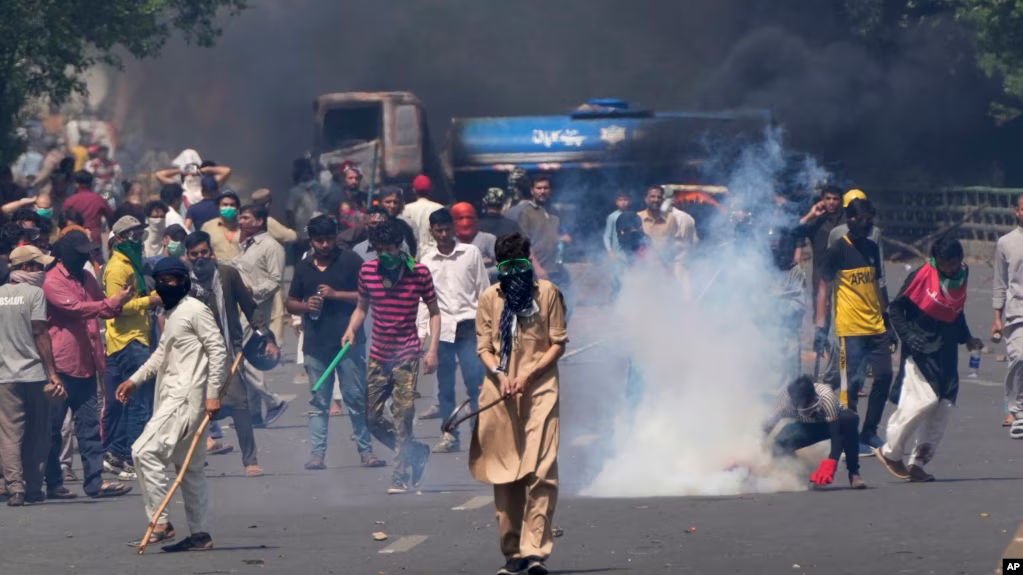
Supporters of Pakistan's former Prime Minister Imran Khan remove tear gas shell fired by police to disperse them during a protest in Lahore, Pakistan, Image: AP
- The army influence - Pakistan is notorious for its army influencing the elections. In the past, it has been clearly visible that a government failed to keep its power without the help of the country’s army. Hence the major struggle for the political wing is to conduct elections without the Army’s influence. Another issue that remains apparent is the fact that if Pakistan continues delaying elections, the country’s army has the potential to take over.
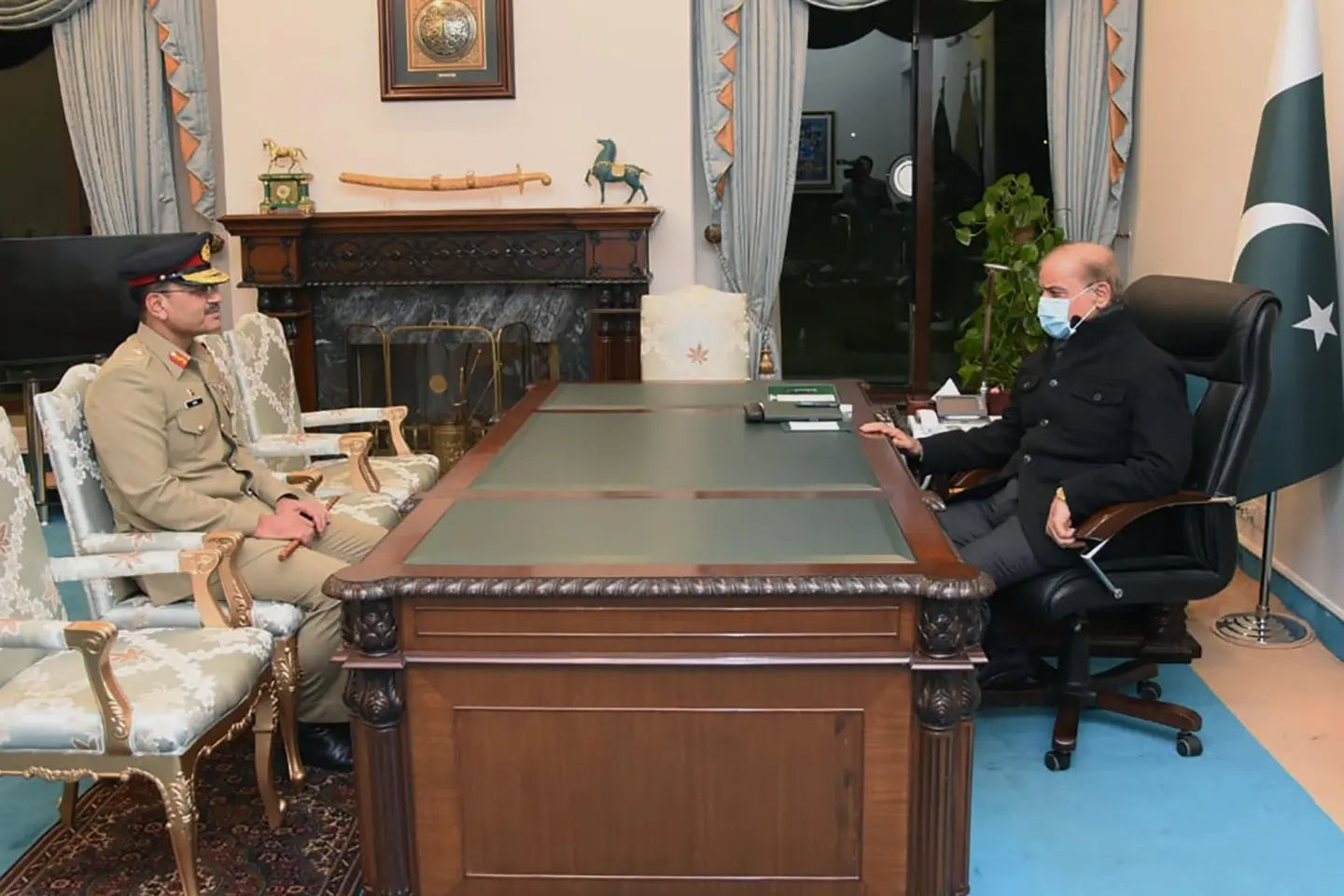
Newly appointed Army Chief, Gen. Syed Asim Munir, left, meets former Prime Minister Shehbaz Sharif, in Islamabad, Pakistan, Thursday, Nov. 24, 2022, Image: AP
Advertisement
Published October 9th, 2023 at 00:32 IST